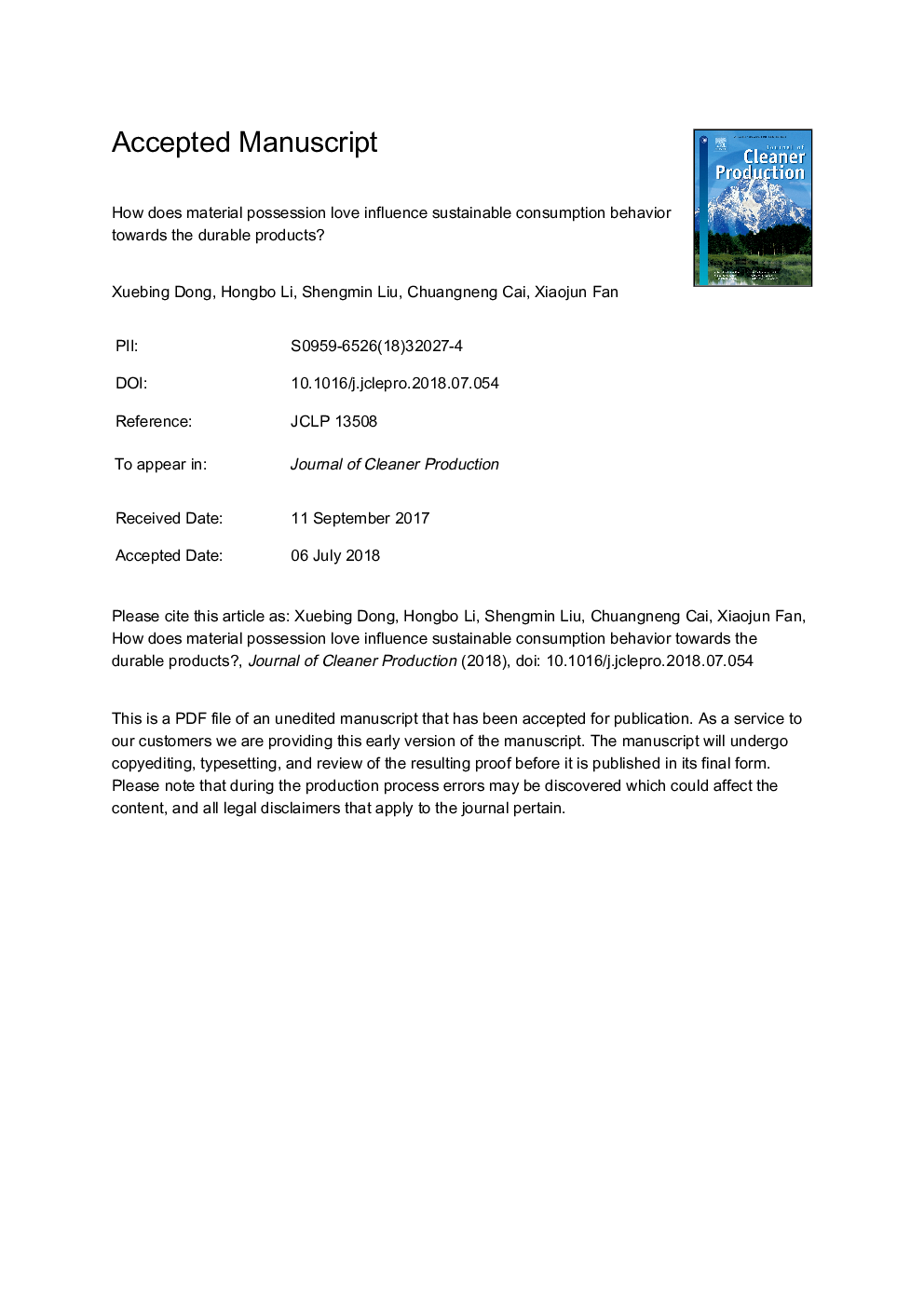| Article ID | Journal | Published Year | Pages | File Type |
|---|---|---|---|---|
| 8093474 | Journal of Cleaner Production | 2018 | 26 Pages |
Abstract
Sustainable consumption behavior of residents affects the sustainable development of the society. Sustainable consumption behavior of durable products involves interactions between the consumer and product, while emotions are an important factor that occurs during interaction between the consumer and the product. The current study explores the effect of consumers' needs on material possession love and sustainable consumption behavior toward durable products, and investigates the moderating effect of materialism values. A total of 824 responses were collected from residents in China. An extended model of self-determination theory and material possession love was developed and tested based on structural equation modeling and multi-group analysis. The results indicate that consumers' needs for autonomy, affiliation, and control significantly affect material possession love, thereby affecting their sustainable consumption behavior. Materialism strengthens the positive effect of the need for autonomy and need for control on material possession love. Materialism does not have a significant moderating effect of need for affiliation on material possession love. The research findings will benefit both environmental and economic enhancement efforts among policymakers, educators, and industry professionals, enabling them to formulate strategies to ensure better communication with consumers to promote desirable consumption behavior.
Keywords
Related Topics
Physical Sciences and Engineering
Energy
Renewable Energy, Sustainability and the Environment
Authors
Xuebing Dong, Hongbo Li, Shengmin Liu, Chuangneng Cai, Xiaojun Fan,
